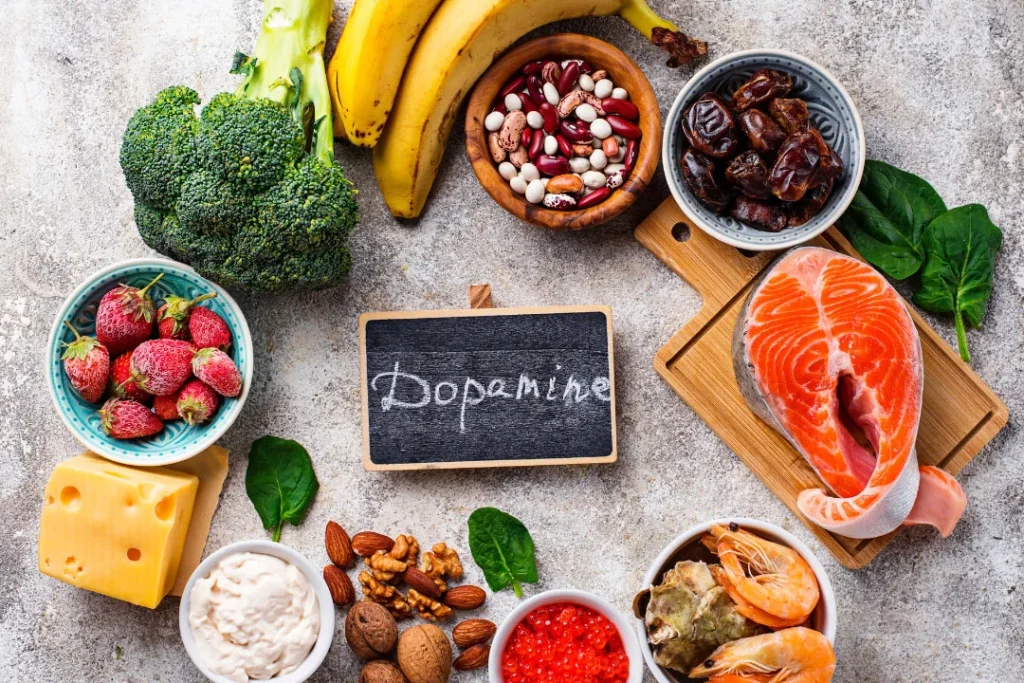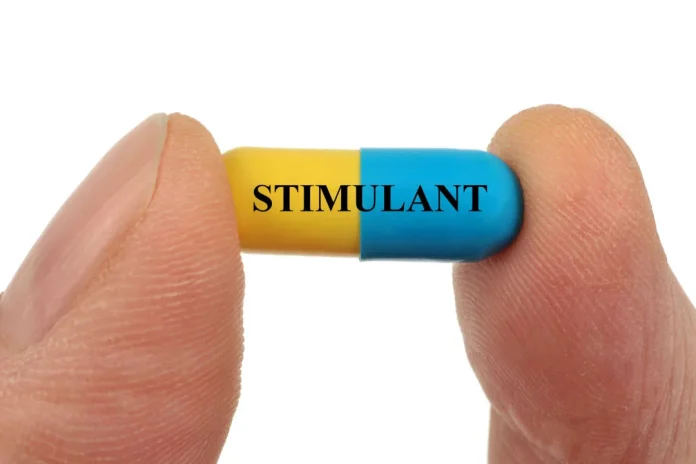We explore the effects of stimulants on the brain and central nervous system (CNS); both beneficial and potentially unhealthy. We also discuss some nootropic alternatives to prescription and non-prescription stimulants to improve cognition and focus.
Central nervous system (CNS) stimulants are medicines or natural substances taken to stimulate the brain and accelerate physical and mental functions. They have become increasingly popular, but are they safe, and are there less risky alternatives? Let’s start by seeing why people take these stimulants and what the effects are.
Effects of Stimulants On The Brain and Central Nervous System is an original (OptimalHealthNews) article.
Waking up the brain and powering up
“CNS stimulants may be useful for the treatment of certain conditions characterized by prolonged fatigue, inability to concentrate, or excessive sleepiness, and may also be used to help with weight loss in people who are morbidly obese,” Drugs.com reports. Certain stimulants are prescribed for attention deficit hyperactivity disorder (ADHD).
Typical effects of stimulants on the brain include increased energy, sharpened alertness, and attention; however, other effects of concern are increased heart rate, elevated blood pressure, and respiratory rate. While concentration improves and self-confidence rises, appetite, inhibitions, and the need for sleep may be diminished.

Physiological effects of stimulants on the brain
Neurotransmitters in the brain, including serotonin, norepinephrine, and dopamine, are known to be the primary reactors to stimulants; they increase the electrical conductivity of the neural networks in parts of the brain that regulate movement, cognition, and consciousness.
Some stimulants may release the “fight or flight” stress hormones adrenaline and cortisol, which pump up the level of glucose in the blood to activate the muscles.

Nootropics present alternate ways to achieve the effects of stimulants on the brain
According to Psychology Today, nootropics “are compounds or supplements that enhance cognitive performance,” formulated with ingredients capable of “enhancing executive function, including memory, decision-making, and creativity.” The word, ‘nootropics’ combines the Greek noos, which means “mind,” and tropein, “to turn or bend.” Nootropics are considered to be a source of energy.
We can divide nootropics into three subgroups:
- Stimulant medicines are commonly prescribed for ADHD and for energy; these are drugs with concentration-improving benefits but with potential side effects, making some people wary of their use. “Stimulant medications can increase blood pressure and heart rate and may also trigger tics, manic episodes, or, in rare cases, psychosis.”
- Ritalin is a methylphenidate drug, as are Concerta, Daytrana, Focalin, and Quillichew. Side effects include a fast heartbeat, chest pain, fever, and joint pain.
- Adderall is an amphetamine, as are Dyanavel, Vyvanse, and Dexedrine; these drugs can overstimulate, causing agitation, anxiety, delusions, and addiction.
- Phenylethylamine controls depression and mood but can cause side effects similar to amphetamine.
- Synthetic compounds act on acetylcholine and glutamate, which are neurotransmitters that improve neural network connections in the brain. They include racetams like Piracetam, the first “smart drug,” used to boost memory following brain injuries or age-related cognitive decline. Piracetam is available without a prescription in the U.S. and by prescription only in Canada.
- Natural compounds include the caffeine in coffee, the amino acid creatine, and many familiar herbs. Very Well Mind identifies several herbs and spices that benefit brain health: “Sage containing compounds that may be beneficial for cognitive and neurological function; and turmeric containing curcumin, which has antioxidant and anti-inflammatory effects that may benefit brain health…” These are safe ways to create some of the effects of stimulants on the brain.
However, while positive benefits have been confirmed by research in each of the three categories, “Prescription drugs consistently outperform natural alternatives in improving executive function” (Psychology Today). However:
- Concerns about short- and long-term side effects are driving more people to natural options.
- The question is whether there is a way to achieve positive effects of stimulants on the brainsafely and naturally, without side effects?

An effective, safe nootropic alternative to medicines, synthetics, caffeine, and herbs
myPEAK is a new company dedicated to holistic health that has developed Brilliance, “The best nootropic caffeine alternative/replacement supplement.” This product is entirely plant-based and vegan. Brilliance promises to support up to eight hours of sustained energy and provide a pre-workout energy boost. It also offers peak cognitive performance, improved memory, and focus, leading to elevated productivity and long-term brain health.

Looking closer at Brilliance, we were impressed. It is physician-formulated, lab-tested, and produced in the USA under FDA registration. Research shows that the effects of stimulants on the brainand CNS are optimized when a synergistic blend of nutrients is metabolized by the gut microbiome, which then sends energizing signals through the CNS to the brain.
This effect is achieved by Brilliance’s clinically proven, premium combination of:
- TeaCrine® theacrine, the anti-inflammatory that fights fatigue and increases cognition
- Cognizin® citicoline, which increases brain energy and boosts cognition
- Rhodiola, a potent adaptogen that helps fight fatigue and stress
- Ginkgo Biloba to increase brain blood flow, memory, and cognition
- Huperzine A, methylfolate (B9), thiamine, niacin, and methylcobalamin to further enhance brain health, memory, metabolism, and cognitive function

A company to trust; a brand worth trying
Bhargav Patel, MD,Co-CEO/Co-Founder, and creator of Brilliance, is a resident physician in the department of Psychiatry and Health Behavior at the Medical College of Georgia. He has devoted his life to the exploration of health and wellness, nutrition, and healing from western allopathic medicine and eastern systems like Ayurveda and traditional Chinese medicine.
Dr. Patel, a published expert on trauma and other stress-related disorders, is committed to helping people live their best lives. He believes that myPEAK’s unique Brilliance formulation achieves the optimal effects of stimulants on the brain safely and naturally by engaging the microbiome, not just the brain:
“For people to perform at their peak, nootropics can’t overemphasize just the brain when the microbiome in the gut has ten times the influence through the CNS than drugs and supplements that only work directly on the brain,” he asserts.
Under the inspired leadership of Dr. Patel andhis Co-CEO/Co-Founder, Urja Shah, myPEAK is pursuing the triple mission of helping customers live their best lives with science-based natural blends, helping the community by contributing one meal to Feeding America® for every product sale, and supporting sustainability with carbon reduction initiatives. It’s good to know that there is at least one high-quality, socially conscious nootropic supplement brand that can meet your needs and enhance the health of your brain.

Further Reading For Additional Reference:
Cerebra: The ultimate guide for the racetams: Usage, types, and benefits.
Drug.com: CNS Stimulants
Examine.com: Phenylethylamine.
Harvard T. H. Chan School of Public Health: The microbiome.
myPEAK Supplements: Brilliance, the best nootropic caffeine alternative replacement.
National Institutes of Health: Theacrine from camellia.
Psychology Today: Nootropics.
Important Note: The information contained in this article is for general informational purposes only, and should not be construed as health or medical advice, nor is it intended to diagnose, prevent, treat, or cure any disease or health condition. Before embarking on any diet, fitness regimen, or program of nutritional supplementation, it is advisable to consult your healthcare professional in order to determine its safety and probable efficacy in terms of your individual state of health.
Regarding Nutritional Supplements Or Other Non-Prescription Health Products: If any nutritional supplements or other non-prescription health products are mentioned in the foregoing article, any claims or statements made about them have not been evaluated by the U.S. Food and Drug Administration, and such nutritional supplements or other health products are not intended to diagnose, treat, cure, or prevent any disease.
